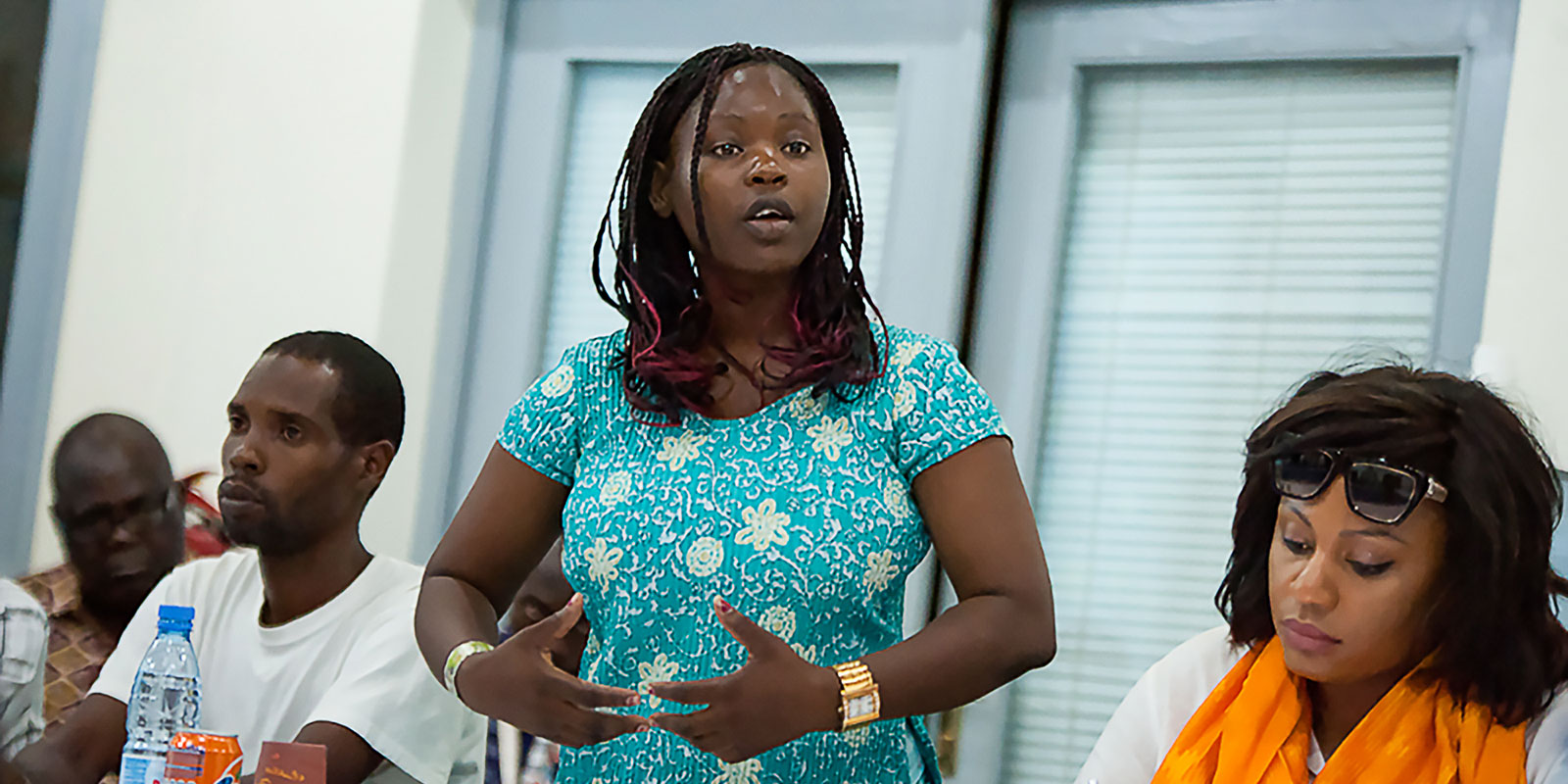Taking into account the demographic dividend represented by our youth, we have a responsibility to history to develop strategies and policies that take into account the individual and collective aspirations of young people. In fact, out of a population of about 200 million in Central Africa, more than 60% are under 25 years of age. This is indicative of a huge demographic dividend, which increasingly aspires to a better life and to assert itself, and which deserves great attention.
@CEEAC_ECCAS is committed to involve the youth, their aspirations, ideas and strength in all processes aimed at strengthening regional integration and development, and this is why it has established an ECCAS Youth Volunteer Corps @yngandu
Tweet
Through the Sport, Employment, Youth and Migration section of the Gender, Human and Social Development Integration Axis, a special place is reserved for youth within the Commission.
Regional and global statistics tell us that, each year, out of 10 million newcomers to the labour market, only 5% find decent work. The rest of the young people who are able to work take refuge in an informal sector that has become more dynamic and, unfortunately, more cruel.
Such a state of affairs is no longer tolerable insofar as our regional space abounds in natural resources and enviable mining, forestry and hydrographic potential. However, it must be noted that these natural, geographical and even cultural assets still do not allow for the creation of sufficient jobs, especially among young people.
Poverty, deprivation and their consequences are all challenges that undermine the development of our youth and expose them to terrorist recruitment, violent extremism, illegal immigration, etc. We must realistically and responsibly reopen the windows of hope for all the young generations who have been brutally confronted with their destiny or, even harder, their lack of destiny.
We know what role youth have always played in improving living conditions and the environment through their dreams, aspirations and bold initiatives. We will never accurately assess the enormous losses caused by their abandonment or marginalisation.
Aware that young people in Central Africa make up nearly three quarters of the population, it is not unreasonable to say that, when placed at the heart of projects for integration and economic, social and cultural development, young people are a real asset. In Central Africa, young people, their talents, their individual or collective intelligence, still do not have enough appropriate mechanisms to enable them to express their potential to the fullest, despite the persistent efforts of Member States. The reason is simple. The response to the growing difficulties facing young people is less and less at national level and more at regional level.
That is why the ECCAS Commission, building on the obvious efforts of member States, development partners and civil society organisations, is taking the initiative to broaden the scope of opportunities for young people so that, aware of their potential, they can organise themselves to make their voices heard and propose clear responses adapted to the specific needs of young people, so that regional integration will be a real opportunity for them to flourish and achieve their full potential. In this context ECCAS is encouraging its member states to establish national youth councils, that on the basis of our regional legal framework for cooperation, can be used to support the establishment and consolidation of a regional youth council.
Volunteerism
United Nations resolution 2250 (on Youth, Peace and Security), resolution 1325 (on Women, Peace and Security) and the African Charter on Human and Peoples’ Rights, as well as the African Youth Charter, encourage young people, both girls and boys, to organise themselves in order to fully play their role as major actors in development.
The determination of the ECCAS Commission to involve the youth in the challenge of development and integration of Central Africa, like other regions of the continent and the world, is based on the credo of volunteerism, among other strategies. As a reminder, since 1968, the UN General Assembly has adopted 20 resolutions on volunteerism, the first 10 of which established the United Nations Volunteers (UNV) programme.
Among our sister Regional Economic Communities, ECOWAS also stands out with the ECOWAS Volunteer Programme, which is a mechanism designed to make use of young qualified citizens of the Community to work as volunteers in member states. In the end, whatever the model used, we must recognise that the future of our community spaces cannot be conceived without a strong involvement of YOUTH as the main drivers and actors!
This observation and this spirit inhabit the ECCAS Commission. Thus, the creation of the ECCAS Youth Volunteer Corps is among the key activities for the celebration of the 38th anniversary of the creation of ECCAS and the first year of the ECCAS Commission.
Thepersonal ambition of the Chairperson of the Commission, and that of the Community, is to involve youth, their aspirations, ideas and strength in all processes aimed at strengthening regional integration and development, resulting in more inclusive, integrated, resilient communities that are willing to live together.
The project of setting up the ECCAS Youth Volunteer Corps is a catalyst for the development of the potential represented by the dynamism of the youth of Central Africa.
Next Steps
ECCAS remains aware of the many challenges that still cloud a clear vision of the future of young people: unemployment, poverty, recruitment into violent extremism, the persistence of armed conflicts with devastating consequences, the global health situation, etc. However, optimism must remain the order of the day. The youth is the solution to finding the best solutions to these and other problems that prevent the Central African States from developing.
Kapinga Yvette Ngandu is the Commissioner, Gender, Human and Social Development, Economic Community of Central African States (ECCAS/CEEAC).


